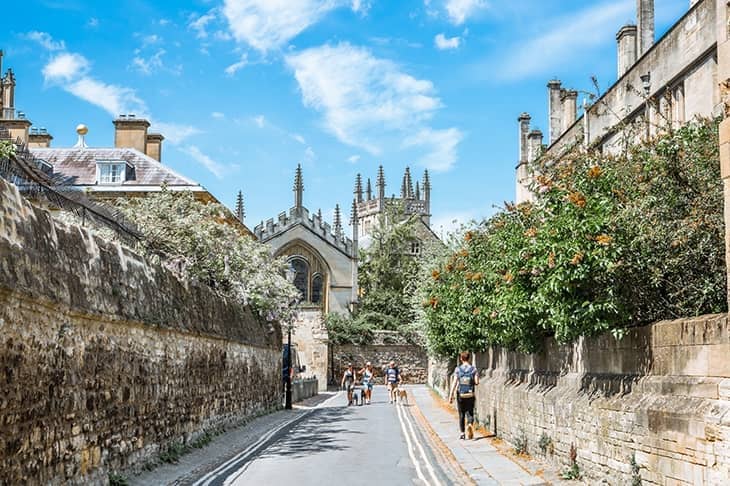Someone sent me a job advert recently for a Junior Research Fellowship at Queen’s College, Oxford. It states: ‘The Queen’s College embraces diversity and equal opportunity. Applications are particularly welcome from women and black and minority ethnic candidates, who are under-represented in academic posts in Oxford. The more inclusive we are, the better our work will be.’
Nothing particularly objectionable about that, although when the college says it aspires to be more ‘inclusive’ it doesn’t mean it wants conservatives to apply, even though they are among the most under–represented groups at Oxford. It makes that clear when it goes on to say Queen’s shares the university’s commitment to promoting equality and has set up a ‘working group’ to see how it can best respond to the demands of the Black Lives Matter movement. Since those demands include defunding the police and overthrowing capitalism — as originally set out on BLM’s UK crowdfunder — I can’t see any conservative applicant getting far.
When I read things like this it makes me think that the work my colleagues and I have been doing to try to make universities and other institutions more tolerant of those who don’t share the prevailing orthodoxy has largely been in vain. That is confirmed in a recent report for the Legatum Institute, which found that about one in three UK academics who identify as right-wing are self-censoring compared with just one in eight who identify as centrists. This is partly because conservatives on campus are becoming an increasingly small minority. In the 1960s roughly 35 per cent of UK academics voted Conservative and 47 per cent Labour; by the mid-2010s, support for left-leaning parties among university staff had climbed to 82 per cent.’

But since it’s Christmas I thought I’d jot down some reasons to be cheerful.








Comments
Join the debate for just £1 a month
Be part of the conversation with other Spectator readers by getting your first three months for £3.
UNLOCK ACCESS Just £1 a monthAlready a subscriber? Log in